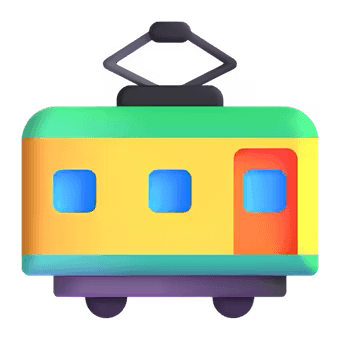railway car
railway car, 전철
Trains are a convenient means of transportation used by many people in cities. It has become a daily routine for many to commute to school or work by train.
Trains are also an environmentally friendly mode of transport. Since they carry many people at once, they cause less air pollution than cars, and they run on electricity, making them clean.
전철은 도시에서 많은 사람들이 이용하는 편리한 교통수단입니다. 매일 학교나 직장에 갈 때 전철을 타고 이동하는 것이 일상이 되었죠.
전철은 환경 보호에도 좋은 교통수단입니다. 많은 사람들이 함께 이용하기 때문에 자동차보다 공기 오염이 적고, 전기로 움직여서 깨끗합니다.


Trains have spearheaded the public transportation revolution in modern cities. Starting with the steam locomotives of the 19th century and evolving to electric power, they have completely transformed the urban landscape.
Trains reflect the unique culture of each country and city. From Japan's punctual operation culture to the artistic station designs of the Paris Metro and Korea's advanced transportation card system, trains have become cultural icons that represent a city's identity, going beyond their role as mere transportation.